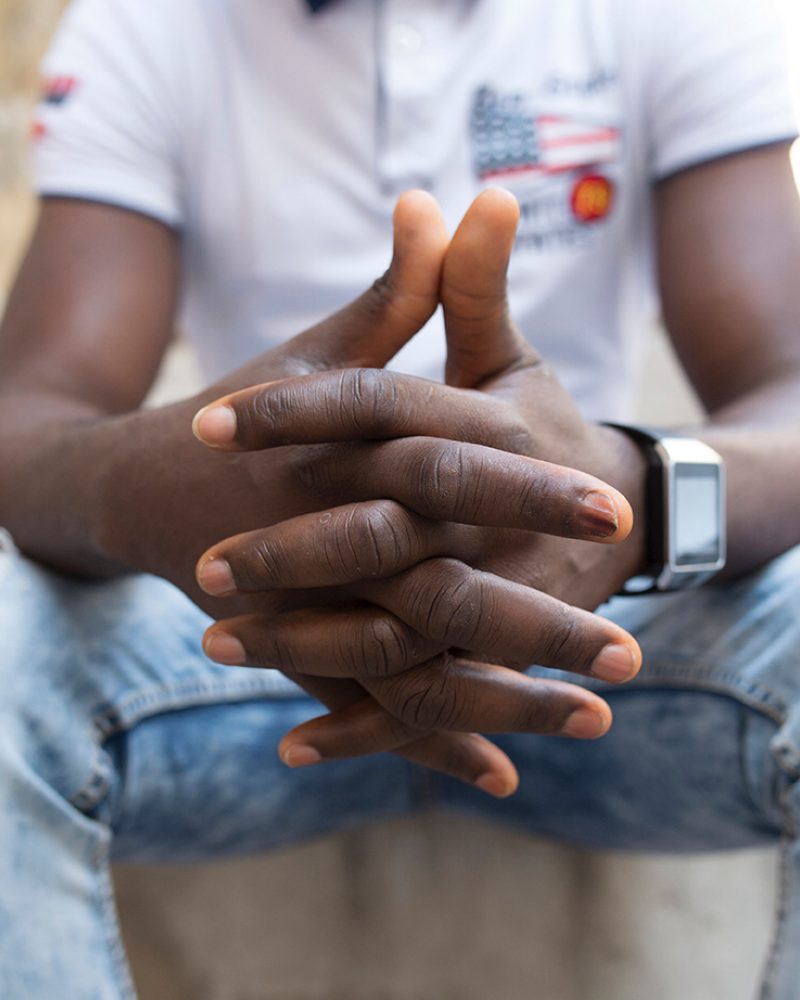Arrival: I Want to Work
" I want to leave something for my children and grandchildren. The Italians give me a place to sleep and food, but I need help finding a job..."

I came from West Africa because of a political problem; my uncle was impeached, our home was vandalized, and all of my family ran away. Our leaders are just leading the economy of the country and not leading the people. I did not wish to leave my country, but we have war in Africa.
One of my friends took me on the Libya route. I stayed in Libya for one month in a prison with two of my friends. One died in the prison—my friend who rescued me. They are shooting and killing people there. Later, they took me to do farm work, and from there I ran away and paid my way to go to the seaside, where I met people going on a ship, and I crossed to Italy.
I have been here in Italy one year and six months.
It’s not easy for me. I am lost. I’ve not seen my family, my friends, or people from my childhood. I can’t shape my life to this different society; I’m not used to it. I’m feeling bad.
The people reject me, and I need a lawyer for my documents. My stress is growing. I’m not talking or doing anything. I’m just in the town sleeping and eating.
I used to have a job working to make mechanical generators. I want to work. Human beings are supposed to work. Work for myself and the generation behind me. I want to leave something for my children and grandchildren. The Italians give me a place to sleep and food, but I need help finding a job. If a person doesn’t know English or Italian, he cannot get a job.
If I leave the camp for more than three days, they will not let me back. They put me on the streets begging for my daily bread. Italians, according to what I see, do not easily like us because of differences. Maybe what they know I don’t know, and what I know they don’t know. They are white; I am black; but we are all human.
Our team members obtain informed consent from each individual before an interview takes place. Individuals dictate where their stories may be shared and what personal information they wish to keep private. In situations where the individual is at risk and/or wishes to remain anonymous, alias names are used and other identifying information is removed from interviews immediately after they are received by TSOS. We have also committed not to use refugee images or stories for fundraising purposes without explicit permission. Our top priority is to protect and honor the wishes of our interview subjects.